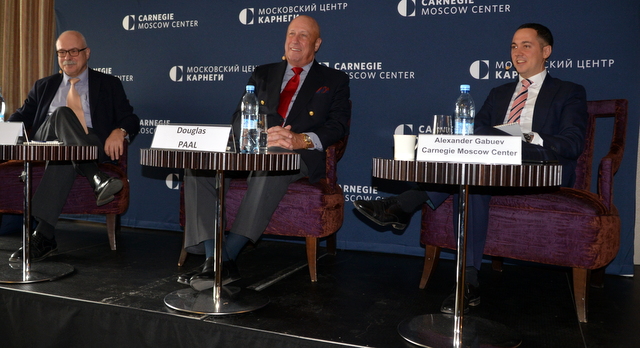Registration
You will receive an email confirming your registration.
Relations between the United States and China are rightly seen as the most important bilateral relationship of our time. Against the background of unprecedented economic interdependence, the strategic rivalry between the two superpowers of the twenty-first century is escalating on all fronts: from the South China Sea to space and cyberspace.
The November presidential election in the United States promises to become a milestone that will determine the future of these relations. What is the American elite’s attitude toward the rise of China? What are the differences and similarities between the two main contenders, Hillary Clinton and Donald Trump, on the issue?
Where does Russia stand as far as the Asian policies of the United States are concerned? Douglas Paal, Vice President of the Carnegie Endowment for International Peace, former adviser to presidents Ronald Reagan and George H.W. Bush, and one of the most esteemed experts on Asia in the United States, shared his views on the issues.
Carnegie’s Dimitri Trenin gave the opening remarks and Alexander Gabuev moderated.
Douglas H. Paal
Douglas H. Paal is vice president for studies at the Carnegie Endowment for International Peace.
Dmitri Trenin
Dmitri Trenin is director of Carnegie Moscow Center and chair of its Foreign and Security Policy Program.
Alexander Gabuev
Alexander Gabuev is a senior associate and the chair of the Russia in the Asia-Pacific Program at the Carnegie Moscow Center.
